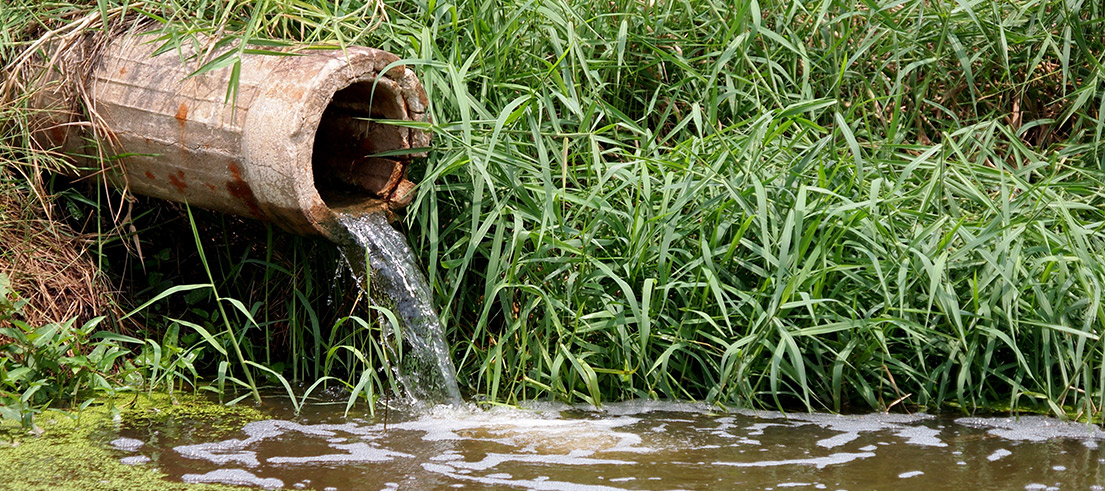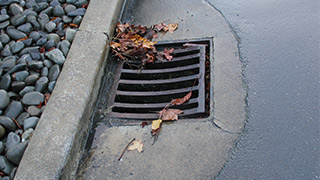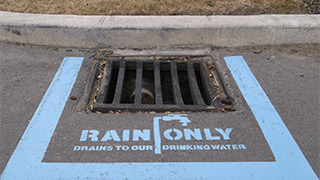
December update: Christchurch/West Melton Zone Delivery Lead

Everything that travels down a stormwater drain ends up in the ocean.
Christchurch / West Melton Zone Delivery Lead Ruth Sarson offers some key advice on what NOT to put down the stormwater drain.
With summer upon us, things like car-washing, re-filling swimming pools, and home DIY will be on many people's to-do lists.
Unfortunately, some of these seemingly harmless activities can negatively affect Canterbury's estuaries and rivers, and the plants and animals that live in them.
Most people don't give a second thought to where those gratings you see next to the footpath actually lead.
But taking a moment to pause before you pour can keep a whole heap of nasties out of our waterways.
What's going down the drain?
Watch Canterbury's stromwater story.
Everything that travels down a stormwater drain ends up in the ocean and, unlike wastewater, usually isn't treated.
This means that things like concrete fragments, detergents and other chemicals all flow into waterways such as the Heathcote River/ Ōpāwaho and Avon River/Ōtākaro and ultimately out to sea.
In fact, stormwater can be contaminated by a range of substances, including:
- fuels, metals and oils that wash off the road
- herbicides
- detergents, such as from car washing
- animal faeces - including from dogs and cats
- paint, ink, and dyes
- chlorine and other cleaning products.
These contaminants can create a toxic marine environment - killing fish and other aquatic life and damaging their habitat.
Reduce the 'drain pain'

Take a few minutes to think about what should and shouldn't go into the stormwater system.
We can all do our bit to help protect our precious waterways.
For instance, while washing your car next to a stormwater system every now and then maybe okay, the cumulative effect from everyone doing the same can cause a lot of harm.
Tips for keeping toxins out of the stormwater system include:
- Washing your car on a grass verge or gravel, instead of a concrete driveway (grass and gravel help absorb/filter detergent).
- Cleaning paintbrushes in the laundry sink, rather than the stormwater drain. They can also be taken to paintbrush recyclers.
- Following regional council guidelines for emptying swimming pools and spa pools. If you can't discharge to the wastewater network and need to discharge onto land, you need to meet certain conditions. These include ensuring the pool water hasn't been treated in the 14 days prior, and that it doesn't flow onto a neighbouring site. Your district council can also provide information on emptying pools.
- Limiting the drift of dirt or dust from your property when doing maintenance work around the home.
- Disposing of hazardous household waste safely. Check your district council website for details on where to take things like liquid chemicals, solvents and pesticides.
- Picking up after your pet.
Before you launch into your holiday activities, take a few minutes to think about what should and shouldn't go into the stormwater system.
Doing the wrong thing can cause serious damage – and lead to an infringement notice.
Seen something - report it
If you see dirt or sediment leaving building sites and going onto footpaths or roads, contact your district council.
To report harmful substances going into the stormwater system, you can phone Environment Canterbury on 0800 765 588 (24/7) or use our Snap, Send, Solve app.
Find more resources on stormwater:
Until next year
So, as you get set to launch into summer - take a moment to think about what's underneath your feet - literally.
Remember, just because something is out of sight, doesn't mean it doesn't exist. Everything is connected, and we can all do our bit to make a difference.
Wishing you all a safe and happy 2022!
Ruth.
